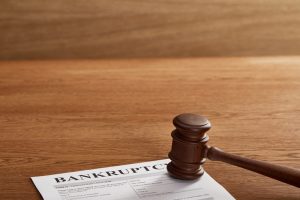
Can You File Bankruptcy on a Judgment? Know the Rules
Can You File Bankruptcy on a Judgment and Eliminate It? Can you file bankruptcy on a judgment is a question
Error: Contact form not found.
Lorem ipsum dolor sit amet, consectetur adipiscing elit. Ut elit tellus, luctus nec ullamcorper mattis, pulvinar dapibus leo.
Can you file bankruptcy on a judgment is a question many people ask after losing a court case and facing wage garnishment or asset seizure. In some situations, filing bankruptcy may affect a judgment, but there are important exceptions and rules that determine how it is treated.
This article explains how bankruptcy affects civil judgments, what types can be wiped out, and when it may not apply.
A judgment is a court order confirming you owe money to a creditor. Once a judgment is entered, the creditor may be able to collect by garnishing wages, levying bank accounts, or placing liens on your property.
Can you file bankruptcy on a judgment tied to credit card debt, personal loans, or medical bills? These are generally treated as unsecured debts, and whether the judgment is addressed depends on the nature of the underlying obligation and other factors.
For example:
If you qualify for Chapter 7 or complete a Chapter 13 repayment plan, these judgments may be addressed as part of the case, depending on the circumstances.
However, not all judgments can be discharged. These include:
In these cases, filing bankruptcy may not eliminate the judgment. The creditor may also object to discharge and request the court exclude the judgment from your case.
Timing matters. If possible, it’s often better to file before a judgment is entered, especially to avoid liens.
When you file bankruptcy before a lawsuit concludes, the automatic stay stops the case from proceeding. This may pause the case from moving forward while the bankruptcy is pending.
Can you file bankruptcy on a judgment that’s already entered? Yes, but be cautious. If the judgment created a lien on your property, the debt may be dischargeable, but the lien might survive. You may need to file a motion to avoid the lien in court.
Timing can affect available options, and delays may allow additional collection activity to occur.
Bankruptcy may provide a legal framework for addressing judgment debt and managing collection activity, depending on the circumstances.
In Chapter 7, the automatic stay stops:
The debt may be addressed through the case if it qualifies under bankruptcy law. You must also ensure the judgment lien doesn’t attach to non-exempt property.
Chapter 13 allows you to:
Even if a debt is not dischargeable, Chapter 13 may allow it to be addressed through a structured repayment plan.
In many cases, filing for bankruptcy may pause collection efforts through the automatic stay. This includes:
Can you file bankruptcy on a judgment to stop these actions? This depends on whether the debt qualifies and how it is handled during the case.
If you’re wondering can you file bankruptcy on a judgment, now is the time to get answers. Bankruptcy may help address the debt and manage collection activity, depending on your situation.
Contact us for a free evaluation to discuss how a judgment may be treated in bankruptcy and which chapter may apply.
Yes. Filing triggers an automatic stay that halts lawsuits and collections, even if the judgment is pending.
It depends. If the underlying debt is dischargeable, the judgment usually is too, unless it’s for fraud or personal injury.
In some cases, yes. You may file a motion to avoid the lien if it interferes with exempt property.
Bankruptcy will stop garnishments immediately once your case is filed, protecting your income.
It’s often better to file before, but you can still file after. Timing affects lien avoidance and collection risk.
Attorney Advertising. This site is a legal marketing service and does not provide legal advice. Submitting information does not create an attorney-client relationship. Results are not guaranteed.

Can You File Bankruptcy on a Judgment and Eliminate It? Can you file bankruptcy on a judgment is a question
| Cookie | Duration | Description |
|---|---|---|
| cookielawinfo-checkbox-analytics | 11 months | This cookie is set by GDPR Cookie Consent plugin. The cookie is used to store the user consent for the cookies in the category "Analytics". |
| cookielawinfo-checkbox-functional | 11 months | The cookie is set by GDPR cookie consent to record the user consent for the cookies in the category "Functional". |
| cookielawinfo-checkbox-necessary | 11 months | This cookie is set by GDPR Cookie Consent plugin. The cookies is used to store the user consent for the cookies in the category "Necessary". |
| cookielawinfo-checkbox-others | 11 months | This cookie is set by GDPR Cookie Consent plugin. The cookie is used to store the user consent for the cookies in the category "Other. |
| cookielawinfo-checkbox-performance | 11 months | This cookie is set by GDPR Cookie Consent plugin. The cookie is used to store the user consent for the cookies in the category "Performance". |
| viewed_cookie_policy | 11 months | The cookie is set by the GDPR Cookie Consent plugin and is used to store whether or not user has consented to the use of cookies. It does not store any personal data. |